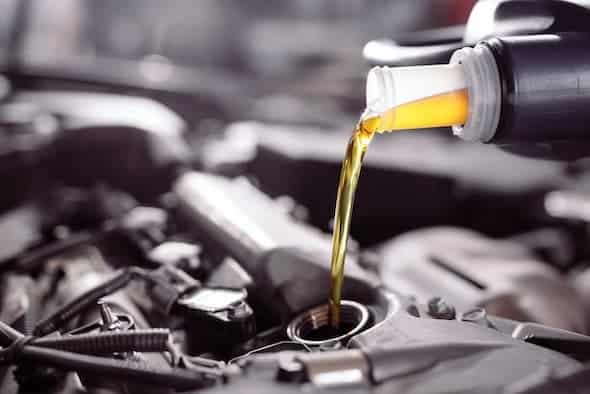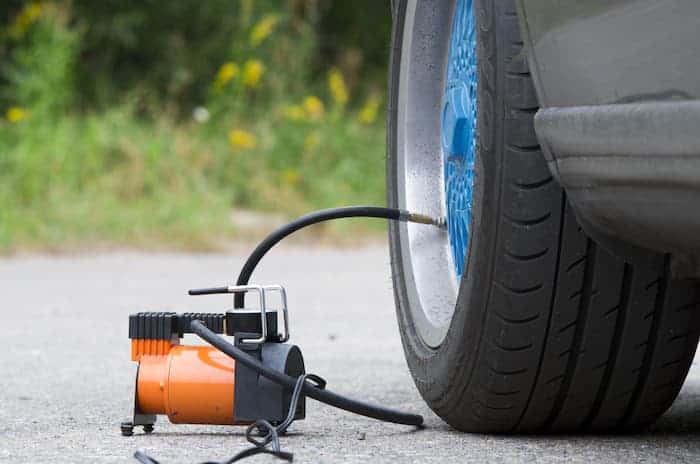One of the most critical aspects of maintaining your car’s health is regularly checking its fluids. Fluids are the lifeblood of your car, and if they are not maintained correctly, it can lead to severe damage and costly repairs. In this article, we’ll be discussing how often you should check your car’s fluids, what fluids you need to check, and how to do it correctly.
Table of Contents
Toggle- What Fluids Should You Check in Your Car?
- How Often Do You Need to Check Your Car's Coolant?
- How Often Do You Need to Check Your Car's Brake Fluid?
- How Often Do You Need to Check Your Car's Transmission Fluid?
- How Often Do You Need to Check Your Car's Power Steering Fluid?
- When Should You Check All Auto Fluids in Your Car?
- Conclusion
- Can I check my car’s fluids myself, or should I take it to a mechanic?
- What happens if I don’t check my car’s fluids regularly?
- What should I do if I notice a problem with my car’s fluids?
What Fluids Should You Check in Your Car?
There are several fluids you need to check regularly in your car to keep it running smoothly. These include:
- Engine oil
- Transmission fluid
- Brake fluids
- Power steering fluid
- Coolant
- Windshield washer fluid
Now that you know what fluids you need to check, let’s answer the question of how often you should do an oil change it. The answer to this question varies based on several factors, including:
- The make and model of your car
- How often you drive your car
- The type of driving you do (highway vs. city driving)
- The age of your car

Windshield washer fluid is a vital component of your car’s cleaning system, as it helps keep your windshield clean and clear for better visibility on the road. Checking your car’s windshield washer fluid regularly is essential for maintaining your vehicle’s safety and convenience.
So, how often do you need to check your car’s windshield washer fluid? The answer depends on several factors, such as the make and model of your car, the type of driving you do, and the climate you live in.
As a general rule of thumb, it’s recommended that you check your car’s windshield washer fluid level at least once a month, or more frequently if you live in an area with a lot of dust, dirt, or debris on the roads. You should also refill the windshield washer fluid reservoir as needed to ensure that you always have enough fluid available for cleaning your windshield.
It’s important to note that windshield washer fluid can freeze in cold temperatures, which can damage the windshield washer system and prevent it from working correctly. For this reason, it’s recommended that you use a windshield washer fluid with a low freezing point if you live in an area with cold temperatures.
If you notice any signs of problems with your windshield washer system, such as reduced spray or no spray at all, you should check the fluid level immediately. Low or contaminated windshield washer fluid can cause severe damage to your car’s cleaning system, leading to costly repairs and potential safety hazards.
In summary, checking your car’s windshield washer fluid regularly is essential for maintaining your vehicle’s safety and convenience. While the frequency of checking the fluid may vary based on several factors, it’s recommended that you check it at least once a month and refill the reservoir as needed. Additionally, using a windshield washer fluid with a low freezing point can help prevent damage to the system in cold temperatures. If you notice any problems with your windshield washer system, be sure to check the fluid level immediately and address any issues promptly.
How Often Do You Need to Check Your Car’s Coolant?

Coolant, also known as antifreeze, is a crucial component of your car’s cooling system, as it helps regulate the engine’s temperature and prevent it from overheating. Checking your car’s coolant regularly is essential for maintaining your vehicle’s health and preventing costly repairs.
So, how often do you need to check your car’s coolant? The answer depends on several factors, such as the make and model of your car, the type of coolant used, and your driving habits.
As a general rule of thumb, it’s recommended that you check your car’s coolant level every six months or every 10,000 miles, whichever comes first. However, you should also follow your car manufacturer’s recommendations for checking and replacing the coolant.
It’s important to note that coolant can break down over time and become contaminated, leading to reduced performance and potential damage to your car’s cooling system. For this reason, it’s recommended that you replace your car’s coolant every two to three years, depending on the type of coolant used and your driving habits.
If you notice any signs of overheating, such as steam or smoke coming from the engine or a high temperature gauge reading, you should check the coolant level immediately. Low or contaminated coolant can cause severe damage to your car’s engine and cooling system, leading to costly repairs.
In summary, checking your car’s coolant regularly is essential for maintaining your vehicle’s health and preventing costly repairs. While the frequency of checking the coolant may vary based on several factors, it’s recommended that you check it every six months or every 10,000 miles, whichever comes first. Additionally, you should replace your car’s coolant every two to three years, depending on the type of coolant used and your driving habits. If you notice any signs of overheating, be sure to check the coolant level immediately and address any issues promptly.
How Often Do You Need to Check Your Car’s Brake Fluid?

Brake fluid is a crucial component of your car’s braking system, as it helps transfer force from the brake pedal to the brake pads or shoes. Checking your car’s brake fluid regularly is essential for maintaining your vehicle’s safety on the road.
So, how often do you need to check your car’s brake fluid? The answer depends on several factors, such as the make and model of your car, the type of brake fluid used, and your driving habits.
As a general rule of thumb, it’s recommended that you check your car’s brake fluid every six months or every 10,000 miles, whichever comes first. However, you should also follow your car manufacturer’s recommendations for checking and replacing the brake fluid.
It’s important to note that brake fluid is hygroscopic, meaning it absorbs moisture over time, which can lead to reduced performance and potential damage to your car’s braking system. For this reason, it’s recommended that you replace your car’s brake fluid every two years, regardless of how many miles you’ve driven.
If you notice any signs of brake problems, such as a spongy or soft brake pedal, unusual noises when braking, or reduced stopping power, you should check the brake fluid level immediately. Low or contaminated brake fluid can cause severe damage to your car’s braking system, leading to costly repairs and potential safety hazards.
In summary, checking your car’s brake fluid regularly is essential for maintaining your vehicle’s safety on the road. While the frequency of checking the fluid may vary based on several factors, it’s recommended that you check it every six months or every 10,000 miles, whichever comes first. Additionally, you should replace your car’s brake fluid every two years, regardless of how many miles you’ve driven. If you notice any signs of brake problems, be sure to check the fluid level immediately and address any issues promptly.
How Often Do You Need to Check Your Car’s Transmission Fluid?

Transmission fluid is a critical component of your car’s transmission system, as it helps lubricate the moving parts and regulate the transmission’s temperature. Checking your car’s transmission fluid regularly is essential for maintaining its health and preventing costly repairs.
So, how often do you need to check your car’s transmission fluid? The answer depends on several factors, such as the make and model of your car, the type of transmission fluid used, and your driving habits.
As a general rule of thumb, it’s recommended that you check your car’s transmission fluid every 30,000 to 60,000 miles. However, some car manufacturers recommend checking it more frequently, such as every 15,000 miles, depending on the type of transmission fluid used and the driving conditions.
It’s also important to note that some newer cars have sealed transmissions, which means you won’t need to check the fluid level as often. However, you should still follow your car manufacturer’s recommendations for checking and replacing the transmission fluid.
If you notice any signs of transmission problems, such as rough shifting, slipping gears, or strange noises, you should check the transmission fluid level immediately. Low or contaminated transmission fluid can cause severe damage to your car’s transmission system, leading to costly repairs.
In summary, checking your car’s transmission fluid regularly is essential for maintaining its health and preventing costly repairs. While the frequency of checking the fluid may vary based on several factors, it’s recommended that you check it every 30,000 to 60,000 miles or as recommended by your car manufacturer. If you notice any signs of transmission problems, be sure to check the fluid level immediately and address any issues promptly.
How Often Do You Need to Check Your Car’s Power Steering Fluid?

Power steering fluid is an essential fluid in your car’s power steering system, as it helps transfer the force from the steering wheel to the wheels of your car. Checking your car’s power steering fluid regularly is crucial for maintaining your vehicle’s safety and convenience.
So, how often do you need to check your car’s power steering fluid? As a general rule of thumb, it’s recommended that you check the power steering fluid level every six months or every 10,000 miles, whichever comes first. However, you should also follow your car manufacturer’s recommendations for checking and replacing the power steering fluid.
Low or contaminated power steering fluid can cause severe damage to your car’s steering system, leading to costly repairs or potential safety hazards. For this reason, it’s essential to replace your car’s power steering fluid regularly and keep the fluid level within the recommended range.
If you notice any signs of problems with your power steering system, such as difficulty turning the steering wheel or a whining noise when turning, you should check the power steering fluid level immediately. Low or contaminated power steering fluid can cause severe damage to your car’s steering system and lead to costly repairs.
In summary, checking your car’s power steering fluid regularly is crucial for maintaining your vehicle’s safety and convenience. While the frequency of checking the fluid may vary based on several factors, it’s recommended that you check it every six months or every 10,000 miles and follow your car manufacturer’s recommendations for replacing the fluid. Additionally, replacing your car’s power steering fluid regularly and keeping the fluid level within the recommended range can help prevent steering problems and costly repairs down the road. If you notice any signs of problems with your power steering system, be sure to check the fluid level immediately and address any issues promptly.
When Should You Check All Auto Fluids in Your Car?
While it’s recommended to check your car’s fluids at least once a month, there are other times when you should check them as well. Here are some situations that may require you to check your car’s fluids:
-
-
-
- Before a long road trip
- After an oil change or other maintenance work
- If you notice any leaks or strange smells coming from your car
- If your car is overheating or experiencing other performance issues
-
-
Checking your car’s fluids regularly can help you catch problems early and prevent more severe damage to your vehicle.
Conclusion
Regularly checking your car’s fluids is essential for maintaining your vehicle’s health and safety on the road. While the frequency of checking your car’s fluids may vary based on several factors, it’s recommended that you do so at least once a month. Remember to check all of your car’s fluids regularly, including engine oil, transmission fluid, brake fluid, power steering fluid, coolant, and windshield washer fluid. By following these tips, you can keep your car running smoothly and avoid costly repairs down the road.
Can I check my car’s fluids myself, or should I take it to a mechanic?
You can check your car’s fluids yourself, and it’s recommended that you do so regularly. However, if you’re not comfortable doing it yourself, or if you notice any problems, it’s always a good idea to take your car to a mechanic.
What happens if I don’t check my car’s fluids regularly?
If you don’t check your car’s fluids regularly, they can become low or contaminated, leading to severe damage to your car’s engine or other components. Checking your car’s fluids regularly is essential for maintaining your vehicle’s health and safety on the road.
What should I do if I notice a problem with my car’s fluids?
If you notice any problems with your car’s fluids, such as low levels or leaks, it’s essential to address them as soon as possible. Check your car’s owner’s manual for instructions on how to add more fluid or take your car to a mechanic for repairs.




